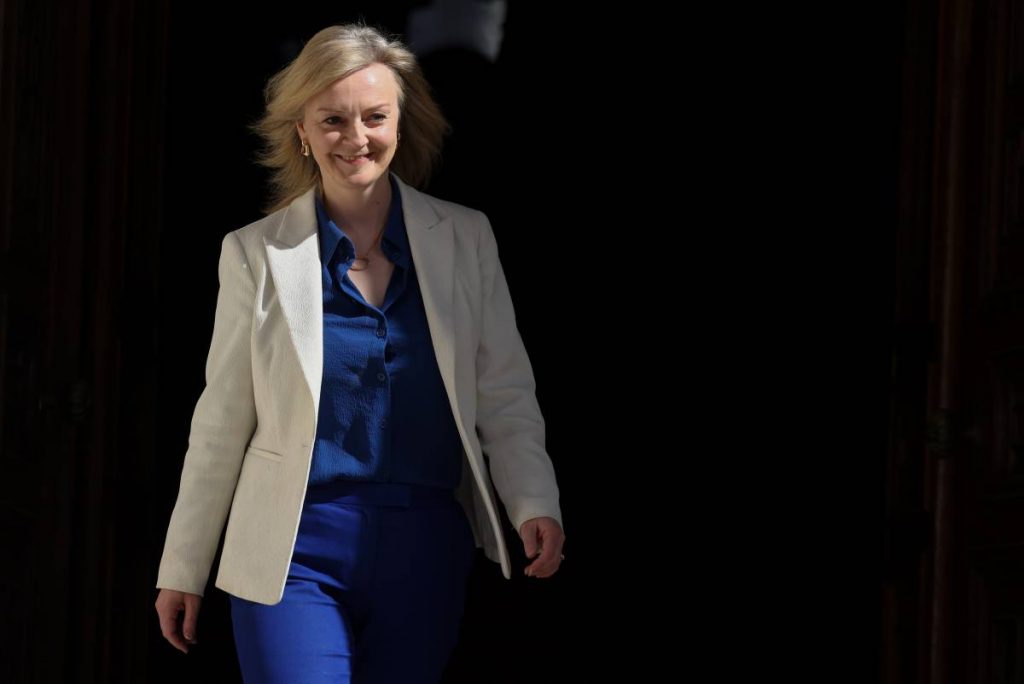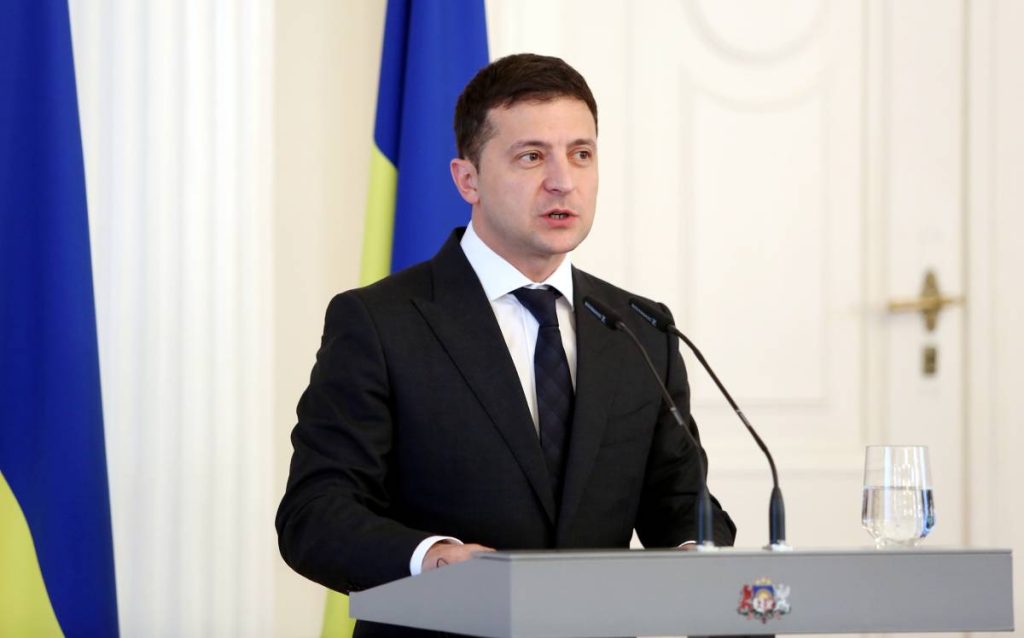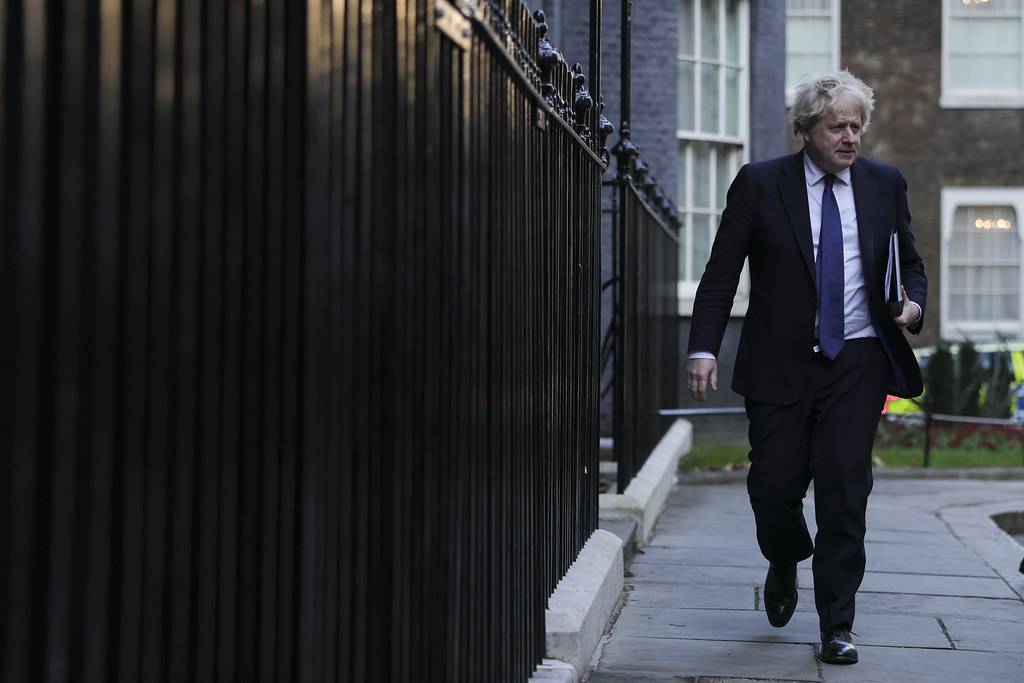PM suggested Putin’s actions were more to do with the fact that his forces were meeting “more resistance than the Kremlin had bargained for,” reports Asian Lite News
British Prime Minister Boris Johnson has dismissed President Vladimir Putin’s announcement that he is putting Russia’s nuclear deterrent on high alert as a “distraction” from the struggle his troops are facing in Ukraine.
Putin said on Sunday that he was putting Russia’s nuclear forces on a “special regime of combat duty” in response to “aggressive statements” from western powers.
But Johnson suggested his actions were more to do with the fact that his forces were meeting “more resistance than the Kremlin had bargained for”.
He also cast doubt on possible negotiations between Russian and Ukrainian delegations to try to resolve the crisis.
Ukrainian President Volodymyr Zelenskyy agreed that the two sides could meet on the Ukraine-Belarus border, having initially rejected an offer of talks in Belarus.
But Johnson said there was nothing to suggest that Putin was genuine in his offer.
“There’s nothing I’ve seen so far in his behaviour that leads me to think that he could possibly be sincere,” he said.
Earlier, Russian TV footage showed Putin meeting his defence minister and the chief of the general staff, and instructing them to put the nuclear deterrent on a “special regime of combat duty”.
“Western countries aren’t only taking unfriendly actions against our country in the economic sphere, but top officials from leading Nato members made aggressive statements regarding our country,” Putin said.
The expected assault on Kiev again failed to materialise on Sunday.
“This is an innocent people who are facing a totally unprovoked act of aggression against them,” Johnson said.
“And what’s actually happening is that they are fighting back perhaps with more effect, with more resistance, than the Kremlin had bargained for.
“You can see some of the logistical difficulties that the Russian forces are experiencing. The Russian Defence Ministry have themselves conceded that they’re having casualties.
“This is a disastrous misbegotten venture by President Putin.”
In the US, White House press secretary Jen Psaki accused Putin of resorting to the tactics he used running up to invasion, “which is to manufacture threats that don’t exist in order to justify further aggression”.
Nato Secretary General Jens Stoltenberg also condemned the threat.
“This is dangerous rhetoric,” Stoltenberg said. “This is a behaviour which is irresponsible.”
On Sunday, Johnson addressed the congregation at the Ukrainian Catholic Cathedral in London.
He said that while he bore no hostility to the Russian people, there was no excuse for the country’s leaders who had chosen “the path of violence and aggression”.
“Never in all my study or memory of politics and international affairs have I seen so clear a distinction between right and wrong, between good and evil, between light and dark,” Johnson said.
‘SWIFT’ hit on Russia
Earlier, Foreign Secretary Liz Truss said that faced with the possible end of his regime, Putin could resort to the “most unsavoury means” in Ukraine.
“I urge the Russians not to escalate this conflict but we do need to be prepared for Russia to seek to use even worse weapons,” Truss told Sky News
After the co-ordinated announcement by the UK, US, EU and Canada late on Saturday that some Russian banks would be excluded from the Swift global payments system, she said it was vital to maintain pressure on Moscow with more economic sanctions.
She said the Foreign Office was drawing up a “hit list” of Russian oligarchs who would have travel bans and asset freezes imposed in the coming weeks.
Truss said there would be an “economic cost” to pay for sanctions but it was essential that Mr Putin was stopped in Ukraine to avert future wars in Europe.

“If we don’t stop Putin in Ukraine we are going to see others under threat – the Baltics, Poland, Moldova — and it could end up in a conflict with Nato,” she said.
“Yes, there will be an economic cost here in Britain, there will be a cost in terms of access to oil and gas markets.
“I firmly believe that the British public understand the price we will pay if we don’t stand up to Putin now.”
PM call with President Zelenskyy
The Prime Minister spoke to Ukrainian President Zelenskyy again yesterday evening.
The Prime Minister lauded the bravery of the Ukrainian people following the Russian invasion and praised the leadership of President Zelenskyy in the face of such adversity.
The resistance of the Ukrainian people was heroic, the Prime Minister added.

President Zelenskyy said he believed the next 24 hours was a crucial period for Ukraine, and the Prime Minister said he would do all he could to help ensure defensive aid from the UK and allies reached Ukraine.
The leaders agreed to continue to stay in close contact and the Prime Minister reiterated the UK’s staunch support for Ukraine’s sovereignty.
Humanitarian aid to Ukraine
Meanwhile, Prime Minister Boris Johnson announces £40 million of further humanitarian aid to Ukraine.
The funding will help aid agencies respond to the deteriorating humanitarian situation, creating a lifeline for Ukrainians with access to basic necessities and medical supplies such as medicines, syringes, dressings and wound care packs. UK Government humanitarian experts have also deployed to the region to support those fleeing the violence in Ukraine.
Prime Minister spoke again to Ukrainian President Zelenskyy who updated him on the critical need for humanitarian assistance as people are forced to flee their homes and seek safety.
The UK also continues to support those Ukrainians who wish to remain close to home through logistical and humanitarian support to Ukraine’s neighbours.
The Prime Minister said, “In the last days the world has witnessed awe-inspiring displays of bravery and heroism from the Ukrainian people in response to those who seek to obliterate their freedom by force.”

Leave a Reply